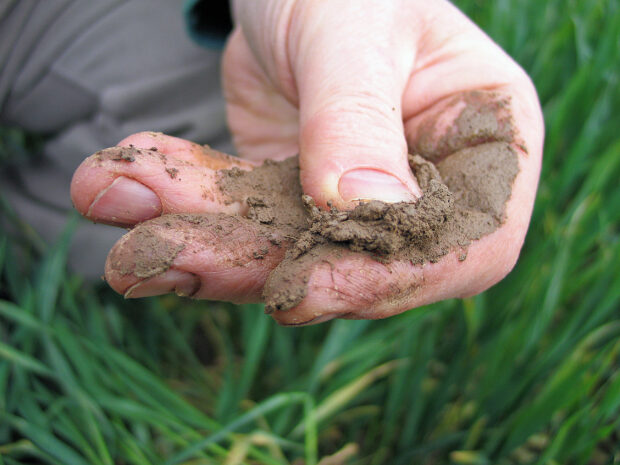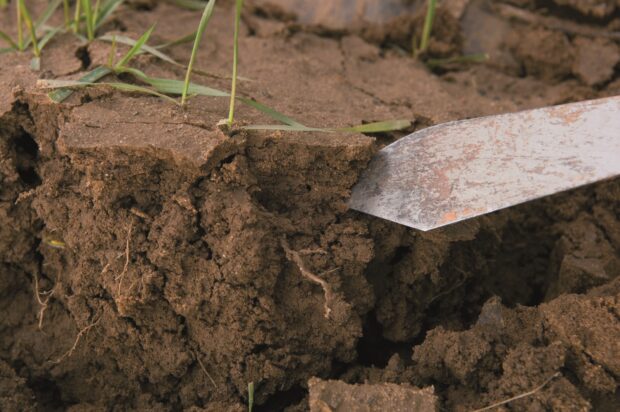
Established by Defra in 2018, the Farming Rules for Water (FRfW) were introduced to reduce and prevent diffuse water pollution from agricultural sources. They are applicable to all farmers and land managers across England and work to safeguard water quality and minimize agricultural pollution.
The Environment Agency is responsible for enforcing the farming rules for water, giving advice and guidance to farmers, and undertaking farm inspections. With around 8,000 farm inspections carried out over the past 4 years, we have a lot of useful data that shows us the most common issues we come across on farms.
In the next two weeks we’re going to take a look at two of the top breaches of Farming Rules for Water – lack of recent soil testing and no nutrient management plan. Both of these are a legal requirement under Farming Rules for Water. In this blog we’re taking a look at soil testing requirements. We start with the important bit.

What are the regulations?
- Regulation 5 of the FRfW states that when planning an application under regulation 4(1)(a) to cultivated agricultural land, a land manager must ensure that the results of soil sampling and analysis are taken into account.
- The results of the soil sampling and analysis
- must include the pH of the soil and the levels of nitrogen, phosphorus, magnesium and potassium present,
- must be no more than 5 years old at the time of the application, and
- may have been collected before the date on which these Regulations come into force, including by another land manager.
- Nitrogen levels may be determined by assessment of the soil nitrogen supply, rather than soil sampling and analysis.
- In this regulation, “cultivated agricultural land” means agricultural land which has been cultivated by physical means (including ploughing, sowing or harvesting) at least once in the previous year, or by chemical means (including the application of organic manure or manufactured fertiliser) at least once in the previous 3 years.
We know what the regulations say, but…
Why is getting your soil tested important?
Apart from the fact that it is a regulatory requirement, soil testing will be good for your business. By having an accurate picture of the level of phosphorus and nitrogen in your soil you can plan your use of nutrients more accurately, and only use what you need. This will save you time and money alongside having positive benefits on the environmental benefits.
Farm inspections – what do EA officers want to know about your soil?
Firstly, that you have had soil testing carried out in the past five years and are able to provide evidence of that. Secondly, that the results are used to inform how you apply nutrients to your soil.
A deep understanding of soil chemistry is not necessary, and, in many cases, you may work with an agronomist (an expert in soil management) or other adviser to understand your soil testing results.
Getting a soil test
There’s no need for a home chemistry set, there are many companies who provide soil testing and analysis services.
Members of the NFU can access subsidised soil testing here:
https://www.nfuonline.com/nfu-member-rewards/nrm-soil-analysis/
Catchment Sensitive Farming run courses on soil analysis and testing: https://www.gov.uk/guidance/catchment-sensitive-farming-reduce-agricultural-water-pollution
The AHDB also have a database of companies who provide soil testing services:
https://ahdb.org.uk/knowledge-library/soil-and-forage-testing-companies
It is also worth researching what support is available through local rural and wildlife organisations and trusts.
What do our officers say?
In some respects, the most important part for us is the conversation you’ll have with our officers when they visit. We asked our Senior Environment Officer in Devon and Cornwall, Rob Baker, for ‘an on the ground’ take on soil testing:
“During a farm visit farmers can expect to be asked to provide evidence of recent soils analysis and assessment for pH, N (Nitrogen), P (Phosphorus), K (Potassium) and Mg (Magnesium) for the fields they cultivate. This is a legal requirement under the Farming Rules for Water legislation and meets the Code of Good Agricultural Practice).
It’s not expensive, typically £10-£15 per sample, some organisations will even do it for you for free.
If you include soil organic matter in the analysis, you will even meet the criteria for some of the new Sustainable Farming Incentive (SFI) options.
Farmers are busy people and occasionally tell me they know their own soils, saying “why do I need a piece of paper to tell me.” The truth is things change, and you might just be surprised what the results are!”
Next week we will take a look at nutrient management plans. These go hand in hand with soil testing – if you know what’s in your soil, you can plan more accurately what to put on it.
For more information and assistance on soil testing, visit NFU Online, Catchment Sensitive Farming, and the AHDB Soil and Forage Testing Companies.
Together we can build a healthier environment and a more sustainable future in agriculture.

Leave a comment